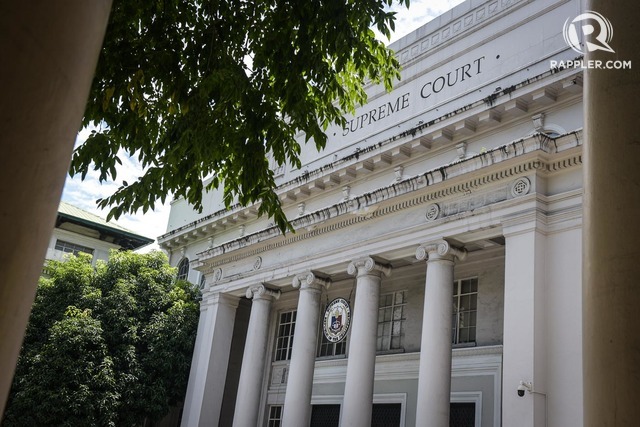The Supreme Court (SC) has declared that persons cited by the Senate in contempt during legislative inquiries could only be imprisoned “until the termination” of the probe.
The SC laid down this precedent in the case of Aegis Juris fraternity leader Arvin Balag, who had questioned his detention during the Senate’s inquiry into the Horacio Castillo III hazing case.
In the recent 21-page en banc decision, the SC reckoned the issuance of a committee report on the legislative inquiry as the point where it would be deemed terminated and the detainees “should be released.”
Prior to Balag’s case, previous SC rulings allowed the indefinite imprisonment of persons cited in contempt—they could even spend life behind bars in theory.
This was because the Senate is a continuing body (half of the members are replaced alternately every election cycle), unlike the House of Representatives that adjourns every three years.
Balag’s case made the SC find a “genuine necessity to place a limitation” on such penalties.
The SC said it found the need to “strike a balance between the interest of the Senate and the rights of persons cited in contempt during legislative inquiries.”
It noted that the Senate could exercise its power to cite persons in contempt “as long as there is a legitimate legislative inquiry,” since the purpose is to ensure respect and cooperation for such proceedings.
“Once the said legislative inquiry concludes, the exercise of the inherent power of contempt ceases and there is no more genuine necessity to penalize the detained witness,” read the decision penned by Associate Justice Alexander Gesmundo.
While the 1950 Arnault ruling raised the fears that the Senate would be denied the power to ensure orderly proceedings if the detention period was limited, the SC now said such concerns were “insufficient.”
The SC pointed out that persons who act in contempt of Congress could still be charged for the crime of “disobedience to summons” under Article 150 of the Revised Penal Code and tried before the courts.
(Senator Leila de Lima is currently facing such a case for allegedly discouraging her driver Ronnie Dayan from attending the House of Representatives’ investigation against her in 2016.)
At the same time, the SC said Balag’s petition seeking its intervention in his detention by the Senate was already “moot and academic.”
This was because the SC already ordered Balag’s release from detention way back on December 12, 2017.
At the same time, the Senate public order and justice committees already terminated their legislative inquiries on January 23, 2018 and the Senate even passed on February 12, 2018 its version of what was now Republic Act Number 11053.
The inquiry looked into the September 12, 2017 death of Castillo, a law freshman of the University of Santo Tomas (UST), during the Aegis Juris fraternity initiation rites.
Source: this post from abogado.com.ph








